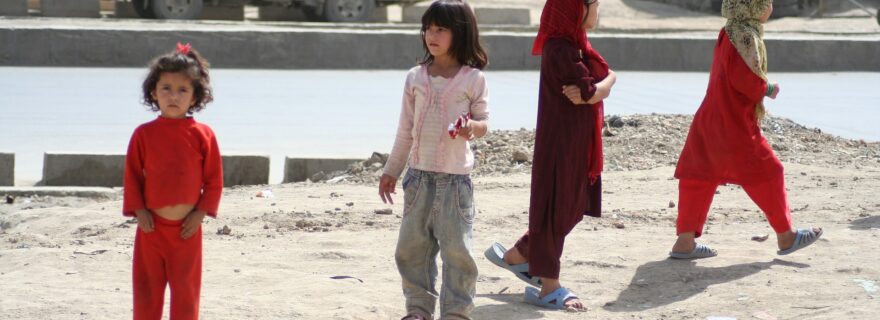A plea for more focus on children's rights
States can deny refugee protection in cases where a person could find safety in another part of their home country. A closer look at this well-established doctrine reveals yet another area where children's rights are unexplored.
Two doctrines are well established in international law. Firstly, the internal protection alternative provides that States can reject an applicant's claim for refugee protection (and subsidiary protection) if there is a safe and reachable area in their home country where they can settle reasonably. Secondly, the doctrine of the best interests of the child provides that the interests of the child must be assessed and that they are a primary consideration in every decision concerning the child.
So far, scholarship and international jurisprudence seem reluctant to combine those two doctrines to provide international child-specific standards on when an unaccompanied minor can be considered to settle safely and reasonably in a part of their home country. Hence, I will explore some arguments on how to safeguard the best interests of the child when determining whether refugee protection can be denied because of an available internal protection alternative.
No weighing of interests
First, I need to clarify that the best interests of the child cannot lead to an assessment of whether the child is better off in a safe area in their home country or the new host country. The scope of a refugee status determination decision (which includes the search for a safe area in the home country) leaves no room for weighing the interests of the child against the interests of the State. It determines solely whether a person would face severe human rights violations in their country of origin (see argumentation by the Norwegian Supreme Court refuting a third-party submission by the UNHCR).
However, as I will show in the next part, child-specific considerations remain relevant when interpreting an internal protection alternative. Therefore, I will zoom in on situations where unaccompanied minors would find themselves without family in a safe area. I will argue that settling in residual care is only reasonable for a child in cases of small group settings that provide continuity in the child's upbringing. These are not the only child-specific considerations that one could think of. Still, they will demonstrate that scholarship and international jurisprudence have omitted to discuss internal protection alternatives from a children’s rights standpoint.
Only small care settings can fulfil children's emotional needs
According to the EU Qualification Directive, care arrangements in a safe region in the home country must be in the best interests of the child (Recital 27). Furthermore, the Committee of the Rights of the Child clarifies that the ultimate purpose of the best interests of the child is to ensure the enjoyment of all rights under the Convention of the Rights of the Child and the child's holistic development. Hence, an internal protection alternative can only be reasonable if a child receives care in line with Article 20 of the Convention of the Rights of the Child, which provides special protection and assistance for children not in the care of their families.
Without any care arrangement, a child cannot settle reasonably. If States provide care settings, they must regard the child's educational, health, and emotional needs and their needs for affection and safety. According to the UN Guidelines for Alternative Care of Children, a child’s emotional needs will rarely be fulfilled in institutions, especially in large care settings. Hence, these Guidelines call for the deinstitutionalisation of large facilities. Therefore, I argue that children can only settle reasonably when foster care or a small residual care setting that comes close to a family environment is provided, taking the circumstances of every case into consideration.
Children need continuity in their upbringing
Moreover, the Committee of the Rights of the Child emphasises the child's need for continuity in upbringing and ethnic, religious, cultural, and linguistic background. Therefore, continuity should be a relevant factor when deciding whether a care facility is in the child's best interest. Hence, States should consider the duration the unaccompanied minor has been absent from their home country. However, even in cases where the child left their home country recently, States should not automatically assume continuity in culture upon their return solely because the safe region is located in the country the child fled. For example, countries like Afghanistan and Somalia are rich in cultures, religions, and languages. Therefore, States should assess on a case-by-case basis whether a particular institution can guarantee continuity in a child's upbringing. Lastly, States should consider that the social perception of orphans in the proposed location may hinder the child's full and holistic development.
I believe that small care settings that consider the continuity in the child's upbringing will rarely be found in countries refugees usually originate from because such settings demand high (financial) resources. Considering the additional need for a positive perception of orphans, I argue that without any family ties, an internal protection alternative will only be reasonable in the rarest cases.
A call to explore more considerations
To conclude, the best interests of the child demands child-specific considerations when determining whether a safe location in the country of origin is accessible and reasonable for an unaccompanied minor. In the absence of family, only small care settings that consider the continuity in the child's upbringing are reasonable. Unfortunately, I had to draw those conclusions from statements scattered in various documents of different UN bodies. Even though scholarship and international jurisprudence on internal protection alternatives are plentiful, child-specific considerations are rarely given attention – this shows yet another area of law where children's rights are overlooked. I hope this blog provides food for thought to explore more arguments necessary to protect refugee children adequately.



0 Comments
Add a comment